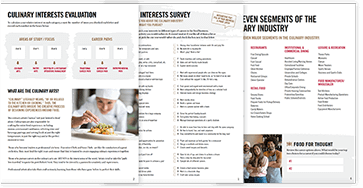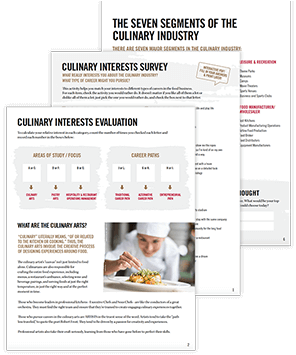Maybe you’ve heard the term “nutrition coach”—or been given the recommendation to find one—but you’re unclear about what this role entails. Is it the same as a dietitian, or a health coach?
Whether you’re searching for a nutrition coach or are interested in making this your career, it’s important to know what a nutrition coach actually does on a day-to-day basis. Nutrition coaching is a specific niche of the larger health and wellness education market. The “health coach” market is expected to hit over $25 billion by 2030. Keep reading to explore what the job entails, how it differs from other related professions, and the education you might need to make it your career path.
Are Nutrition Coaches, Nutritionists, and Registered Dietitians the Same?
To those with little to no background knowledge in the field, the terms “nutrition coach,” “nutritionist,” and “dietitian” might sound interchangeable. But each role focuses on particular outcomes and includes different educational requirements.
- Nutrition coaches are focused on educating their clients about making smarter and healthier food choices that might improve overall wellness. They work with clients from the general population who are not seeking treatment for particular medical conditions. There are no specific academic or professional requirements for nutrition coaches, but they may hold any number of certifications or degrees from various training programs.
- Nutritionists can help address specific health issues by focusing on food choices. When it comes to education requirements, this varies by state. They may range from not having any background education at all, or they may be certified through the Board for Certification of Nutrition Specialists which requires a master’s or doctoral degree, passing exams, and many hours of supervised practice.
- Registered Dietitians also help treat injury, illness, and disease, and they may provide specific services, such as supporting those who struggle with eating disorders. However, they must meet specific academic requirements outlined by the Academy of Nutrition and Dietetics, and must pass an exam in order to be credentialed.

Certified nutritionist ready to consult with clients on meal planning.
What Does a Nutrition Coach Do to Help Their Clients?
Nutrition coaches promote clients taking personal responsibility for their health and well-being, by focusing on wellness from a holistic standpoint, which includes the body, mind, and spirit. While nutrition coaches don’t treat disease, they empower clients with the knowledge they might need to make the best food choices for their distinct situations.

Therefore, nutrition coaches are major contributors to the field of preventive nutrition—the science of using dietary interventions that may delay, reduce, or even eliminate health complications from illness and disease. Coaches might use tools like nutrition assessments to collect information on the client and make recommendations based on their desired changes and outcomes.
Nutrition coaches also teach clients about the basic principles of nutrition science. This may include lessons on optimal macronutrient and micronutrient intake, appropriate portion sizes, food group classifications, and how to read food packaging labels. They might also provide specific strategies or meal plans that could promote healthy, sustainable weight loss or optimal physical performance.
Escoffier’s Holistic Nutrition and Wellness programs not only help prepare students with a comprehensive education in wellness and nutrition but also can provide ways to help their clients self-actualize their potential through practical lifestyle applications.
The Essential Culinary Career Survey
The Essential Culinary Career Survey
What's your ideal culinary career: Fine dining? Your own restaurant? Pastry? Get our self-evaluation survey to find out!

We’ve compiled a checklist of all of the essential questions into one handy guide: career options, culinary interest surveys, educational opportunities, and more.


Types of Nutrition Coaching
There are a variety of specialties that nutrition coaches can pursue that may offer access to a wide array of clients with different interests.
Help Clients With Weight Loss
One of the most common reasons people decide to see a nutrition coach is to lose weight. According to the U.S. Department of Health and Human Services, nearly one in three adults is overweight. Scores of people may set out on weight loss journeys only to wind up feeling defeated because they can’t seem to lose that excess weight. Many times, it might be a nutrition-related issue and they simply need to make different choices. This is when seeking out a nutrition coach might be beneficial.
There are myriad fad diets that promise fast results, but these often come with a hefty price tag in terms of sustainable health and well-being. Nutrition coaches can help clients find the right combination of calories, macro and micronutrients, vitamins, and more that could help them lose weight in a healthier, more sustainable way.

Assist Athletes With Performance Goals
Athletes are naturally concerned with the relationship between food and body—specifically, what they eat and how it might impact their physical performance. With a host of health-related misinformation prevalent today, athletes might find it difficult to determine what they should be doing to improve their performance. This is where “sports” nutrition coaches can step in.
Nutrition coaches who specialize in sports nutrition are uniquely qualified to examine an individual athlete and determine where they need the most support from a nutrition perspective. They might take into account the athlete’s current state of health and performance, future goals, age, body composition, and various facets of the sport, including impact, intensity, duration, and more. Then they can help create nutritional plans that may properly fuel them—making optimizations along the way based on changes in their training routine or competition schedule. Just be sure to review your coach’s qualifications and references before making a long-term commitment.
Support Pre and Postnatal Wellness
For individuals who are pregnant, trying to conceive, or have recently given birth, a nutrition coach specializing in pre and postnatal nutrition can help foster their overall wellness—as well as the health of the baby. Some come to nutrition coaches to find the right nutritional plan for each trimester of pregnancy. Others may have weight loss-related goals after having a baby. And those who are breastfeeding might simply be looking for guidance on what they should be consuming for both their and their infant’s optimal health.
Pregnancy might change hormone levels, caloric needs, extra vitamin and mineral requirements, and more—topics that pre and postnatal nutrition coaches can make recommendations about. Again, review the nutrition coach’s education and credentials to help ensure you’re working with someone credible.
Nutrition Coaching Requires Thorough Training
As the science behind nutrition becomes more accessible to the mainstream, many clients seek out nutrition coaches to teach them about making healthy choices in their day-to-day lives. While a nutrition coach doesn’t necessarily require a specific type of degree in the way that a Registered Dietitian does, they absolutely need the know-how to educate and empower their clients—which usually comes with thorough training.
Explore how a degree or diploma in Holistic Nutrition and Wellness from an accredited institution like Auguste Escoffier School of Culinary Arts can help build specialized knowledge about health-supporting ingredients—equipping graduates with the skills and credibility they may need to thrive in the field.
Interested in learning more about food and nutrition? Read these next:
- What Is Holistic Nutrition and Wellness?
- What Does a Holistic Health Practitioner Do?
- How to Start a Career in Holistic Health
*Information may not reflect every student’s experience. Results and outcomes may be based on several factors, such as geographical region or previous experience.
This article was originally published on December 9, 2021, and has since been updated.



